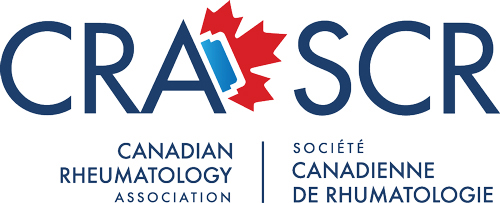Fall 2017 (Volume 27, Number 3)
News From the Therapeutics Committee
By Mary-Ann Fitzcharles, MD, FRCPC
Download PDF

Pharmacologic treatments are the cornerstone in the management of rheumatic diseases. Never before have rheumatologists had such a remarkable choice of drug treatment options, but day-to-day challenges regarding our drug toolbox exist. This is where the Therapeutics Committee (TC) of the CRA steps in to provide updated information on a variety of drug issues as they arise, such as availability of drugs, access to drugs, warnings about drugs, and even new information that may have slipped by the busy physician. In line with the goal of the CRA, “to provide the best services and support for membership so they can provide the best quality care for patients possible,” the TC provides an extra set of eyes or a safety net for our membership. We are fortunate to have world experts in every field of rheumatology in our midst, and are grateful that we can call upon individuals within our community when the need arises. The following is a short overview of some of the activities and accomplishments of the TC in the past year.
Availability of injectable methotrexate was an issue this year that is now fortunately resolved, but we were able to keep our membership abreast of the status via the CRA website. We have now developed a standardized approach to address drug shortages to ensure that all are au courant with the status, and there is a process for engaging the implicated parties and exploring alternatives if appropriate. Following pressure from the Canadian Medical Association (CMA), new regulations require that drug shortages are reported on a new website, www.drugshortagescanada.ca. Fortunately, we do not anticipate any other imminent drug shortages.
An important and challenging project that is currently in the works is harmonizing access to biologic treatments for rheumatoid arthritis (RA) across Canada. This initiative has been spearheaded by Dr. Jane Purvis and Dr. Carter Thorne. Under the umbrella of the Canadian Life and Health Insurance Association (CLHIA), universal criteria for access to biologic treatments for RA have been developed and accepted by all private insurers across Canada associated with CLHIA, a feat that has never previously been achieved for any other drug or condition in Canada. Even with this huge first step, access to biologics across the country is still uneven, with different provinces requiring different criteria. There is much work still to be done.
Another area of activity has been the development of position statements when contentious issues that impact patient care arise. Since 2015, the CRA has made statements regarding medical marijuana use, biosimilars (with particular attention to respecting the decision of the treating rheumatologist), and opioid use. The latter reflects agreement in principle with the 2017 Canadian opioid guidelines, but emphasizes the importance of caring for all aspects of a patient’s health in collaboration with other treating physicians. We anticipate that with the swell of attention given to the legalization of marijuana, the medical marijuana statement will need to be updated.
We appreciate the collaboration with our patient partner organizations and were present at The Arthritis Society (TAS) Pain Symposium in May, where TAS explored the ambitious project of developing a National Canadian Pain Strategy with the involvement of government, patient and healthcare providers as stakeholders. We were prominently at the table and will be active partners in this endeavour.
Finally as a new venture for the upcoming year, we plan to highlight new or interesting drug information to our membership. We will ask our national experts to comment on publications that are pertinent, possibly not mainstream, but which will impact day-to-day patient care, such as new information regarding hydroxychloroquine eye toxicity, alcohol use and methotrexate, and evidence for glucosamine and chondroitin in osteoarthritis (OA). There is, thus, a good bit of hard work ahead which will be effectively accomplished, as we have a truly wonderful TC team.
Mary-Ann Fitzcharles, MD, FRCPC
Associate Professor of Medicine,
McGill University Health Centre
Montreal, Quebec
|
